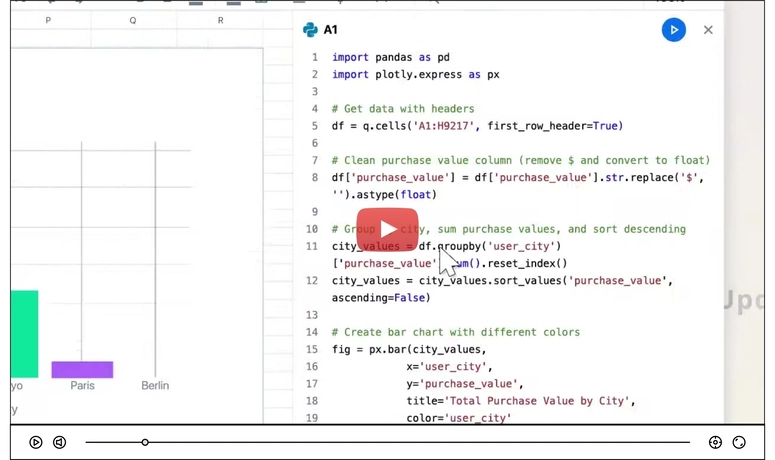The intention of this post is not to say one paradigm is better than the other. It is just to show common imperative patterns you run into and their functional equivalents.
Sometimes things are easier to learn if you can relate it to something you are already familiar with and be given a map on how to transition back and forth.
Previously, I had done something similar at Functional vs Imperative Patterns in JavaScript
Map
map takes a list and runs a function on each item in the list, returning the same length list.
Imperative
const double = x => x * 2
const input = [ 1, 2, 3 ]
const output = []
for (let i = 0; i < input.length; i++) {
output.push(double(input[i]))
}
output //=> [ 2, 4, 6 ]
Functional
const double = x => x * 2
const input = [ 1, 2, 3 ]
const output = input.map(double)
output //=> [ 2, 4, 6 ]
Filter
filter takes a list and returns a list containing all items that match the predicate. In this example isEven is the predicate.
Imperative
const isEven = x => x % 2 === 0
const input = [ 1, 2, 3, 4, 5 ]
const output = []
for (let i = 0; i < input.length; i++) {
if (isEven(input[i])) {
output.push(input[i])
}
}
output //=> [ 2, 4, 6 ]
Functional
const isEven = x => x % 2 === 0
const input = [ 1, 2, 3, 4, 5 ]
const output = input.filter(isEven)
output //=> [ 2, 4, 6 ]
Reduce
reduce takes a list and returns any data structure. It could be another list or an object.
Simple
Imperative
const add = (x, y) => x + y
const input = [ 1, 2, 3 ]
const initial = 0
let output = initial
for (let i = 0; i < input.length; i++) {
output = add(output, input[i])
}
output //=> 6
Functional
const add = (x, y) => x + y
const input = [ 1, 2, 3 ]
const initial = 0
const output = input.reduce(add, initial)
output //=> 6
Complex
Imperative
const isEven = x => x % 2 === 0
const double = x => x * 2
const input = [ 1, 2, 3, 4, 5 ]
const initial = []
let output = initial
for (let i = 0; i < input.length; i++) {
if (isEven(input[i])) {
output.push(double(input[i]))
}
}
output //=> [ 4, 8 ]
Functional
It could be written like (below) but know that it will iterate over the Array twice.
const isEven = x => x % 2 === 0
const double = x => x * 2
const input = [ 1, 2, 3, 4, 5 ]
const initial = []
let output =
input
.filter(isEven)
.map(double)
output //=> [ 4, 8 ]
Alternatively, you can create a reducer that can both filter and map in a single iteration.
const isEven = x => x % 2 === 0
const double = x => x * 2
const input = [ 1, 2, 3, 4, 5 ]
const initial = []
const reducer = (filter, map) => (acc, x) => {
if (filter(x)) {
acc.push(map(x))
}
return acc
}
const output = input.reduce(reducer(isEven, double), initial)
output //=> [ 4, 8 ]
End
I'm currently available for part time contract work (C#, JavaScript, React). Hit me up on Twitter or linkedin to get ahold of me.
My articles are very Functional JavaScript heavy, if you need more FP, follow me here, or on Twitter @joelnet!
More articles
Deconstructing Map, Filter, and Reduce
Ask me dumb questions about functional programming
Let's make a DEV.to CLI... together
Let's talk about auto-generated documentation tools for JavaScript





Top comments (12)
Nice comparison, also the last functional example can avoid the if statement :
I was trying to keep it simple for noobs but I think your solution is much cleaner.
Typically I will use a mutable accumulator in a reducer. Your version is immutable so every iteration will produce a new array. Not the best for performance but this is just for example anyway.
Then with a mutable accumulator :
Awesome!
I'm a big fan of the comma operator. I decided to leave it out in this code block to not confuse anyone. But I use it pretty regularly in my own codebase.
Hi Joel,
I'm one of those noobs, but trying my very best not to be. I am trying to teach myself functional programming in JavaScript and I have come upon the subject of transducers. This code looks very similar; can you confirm that this code is, or is closely related to the concept of transducers.
Thanks
Transducers are the next evolution. You would start with a list, and learn map, filter, reduce. Once you start applying multiple map/filter/reduces to a single list, you realize you are enumerating the list multiple times, which will slow down your application.
Transducers are a way to apply those multiple map/filter/reduces while enumerating the list one time.
Ternary operator it's still an if statement in disguise.
Not exactly, an if statement doesn't evaluate to a value, in other words, it doesn't return anything.
The ternary evaluates to something.
medium.com/javascript-scene/nested...
It's all functional.
Comparison between Imperative vs Declarative.
I still fight with this (though in Kotlin, not JavaScript). OOP/procedural style is much convenient, but I do understand importance of declarative coding because it's much more elegant and pure.
I'd like to argue that imperative code isn't any more convenient, but that it is more familiar.
If you had learned a declarative style first you would feel the same way about oop.
Hmmm...probably correct. I have not thought about it in this way.